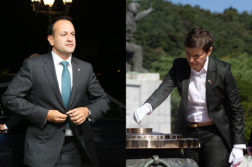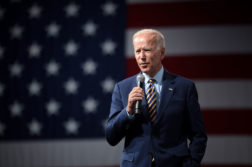From now on primary school students in Chile will learn that there was no dictatorship in Chile. They will learn instead that the dictatorship of General August Pinochet, 1973-1990, was actually a military government.
The change of concepts — to be introduced into the new school texts of history, geography and science — aims to masquerade and legitimise one of the world’s most brutal military dictatorships. Chile’s celebrated historian Gabriel Salazar, one of the many victims of Pinochet, was spot on when he described the move as "stupidity".
According to Plato, those who hold the power write history; and in Chile power is now held by the right wing President — an immensely wealthy tycoon — Sebastián Piñera. Ever since Piñera came to power via the coalition of his party, Renovación Nacional (National Renovation or RN), and the Union Democrática Independiente (Democratic Independent Union or UDI), a party of Pinochet’s henchmen has been attempting to bleach the stains left by the dictatorship.
To swap the word dictatorship for military government has been a long held ambition of the Chilean right. For the former collaborators of the dictator who now walk up and down the corridors of power in La Moneda, Chile’s government house, the word dictatorship was always hard to swallow.
To them the term was inaccurate and unfair — and reflected the left wing view of the period. Ivan Moreira, a staunch Pinochet collaborator and a UDI parliamentarian, said the word dictatorship deleted from school texts would allow an "objective" narration of the Pinochet period — " something that hasn’t been done yet in Chile." Deputy Alberto Cardemil, a long time collaborator of Pinochet and now a member of RN, said countries must revise their past in order to have a more "balanced version" of history.
The introduction of the new concept into school texts was incubated inside the Consejo Nacional de Educación (National Education Council or CNED). This is formed of 10 councillors who are designated by educational and research institutions; the Supreme Court and, believe or not, by the armed and police forces.
The representative of the armed forces is Alfredo Ewing Pinochet (no relation to the dictator) who endorsed the change of concepts. Ewing Pinochet was, according to Communist Party parliamentarian Hugo Gutierrez, a member of General Pinochet’s Central Nacional de Información (National Centre of Information or CNI). The CNI was responsible for the kidnapping, torture and homicide of thousands of dissidents. Around 700 former military personnel were brought to justice; 250 were condemned — but only 50 are now in jail.
Families of the victims of Pinochet, among others, have accused the government of historic revisionism and an attempt to give some kind of legitimacy to the dictatorship. Lorena Pizarro, the president of the Association of Families of Detainees and Missing people, said the abolition of the concept "alters the truth of history".
Since the transition from dictatorship to democracy in Chile in 1990, the word dictatorship has always been problematic in school texts. Initially the word was avoided in school history classes. Among most schools teachers it was a word to be avoided. There remained the fear of offending Pinochet who, until his peaceful death in his own bed, was a disturbing figure in Chile’s new democracy.
Now the figure of Pinochet is once again centre stage. Harald Bayer, the minister of education who was appointed last December, has argued that military regime is a more "general" concept than dictatorship.
The official reason provided by the CNED for the change change states that — and here follows my own translation from Spanish — the new concept will allow students "to compare different versions of the democratic collapse in Chile, the military regime and the process of democratic recovery at the end of the 20th century considering all the different actors, experiences and view points."
Dr Andrea Minte, a history academic and expert in history curriculum development, told New Matilda this was "clearly an effort to rehabilitate the military dictatorship and the figure of General Pinochet." Minte said it was a "euphemism" constructed to avoid historical responsibility. "When military regime is used as a concept there is no direct allusion to General Pinochet, who was internationally recognised and condemned as a dictator and responsible for crimes against humanity." The word dictatorship, Minte said, "involves clear responsibilities and perpetrators."
Such right wing historical revisionism is in full swing in Chile. Another pesky concept for the right wing government is human rights. It has been suggested that it might be replaced by a less accusatory concept, "essential rights"; and human rights violations will be deleted from the historical memory to be replaced by "excess of force".
The right wing attempt to rehabilitate the dictatorship and its leaders goes beyond the school books. Only last month Miguel Krasskoff, a retired general who was condemned to 144 years in prison for crimes against humanity, was publically homaged in a public event organised by the mayor of Santiago, Cristián Labbé, a former bodyguard of Pinochet and a member of the UDI.
Many observers here in Chile believe that the historical rehabilitation of Pinochet, his period in power and the actions of his collaborators is part of a deeper ideological agenda — the derechizar, or push to the right, of Chilean society.
What might result from this ideological conflict is not yet known. What it is clear is that this will re-open old wounds in a society that has failed repeatedly to achieve reconciliation, justice and truth. It is also — after so many years of struggling to build a truly consolidated democracy — an alarming political regression.
Donate To New Matilda
New Matilda is a small, independent media outlet. We survive through reader contributions, and never losing a lawsuit. If you got something from this article, giving something back helps us to continue speaking truth to power. Every little bit counts.



